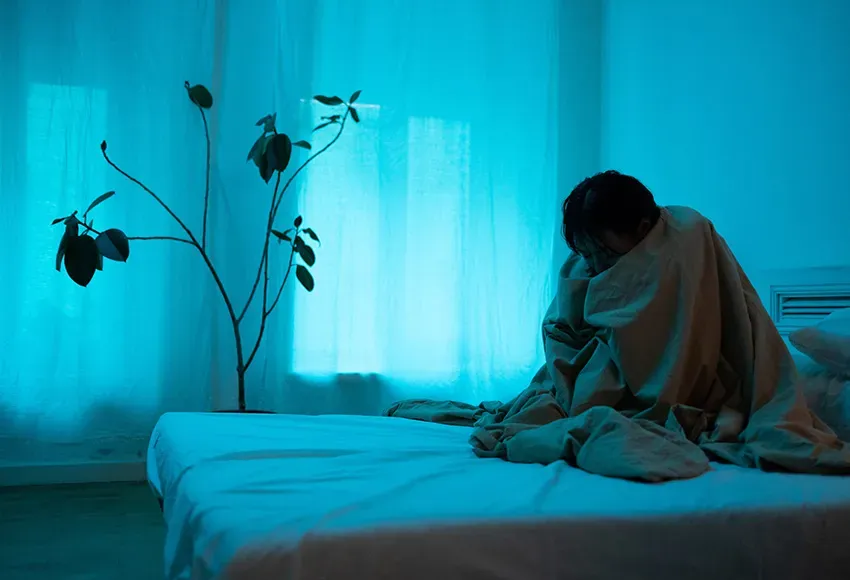
Ask Izzy is a biweekly advice column about relationships, mental health, and sexuality. Written by Isabel Mata – a Seattle-based lifestyle writer, podcast host, and mental health advocate – Ask Izzy offers tangible expert advice so all readers can have stronger relationships, better sex, and healthier mindsets. Looking for some more guidance? Submit your question to [email protected] with the subject line: Ask Izzy Submission.
When I woke up last weekend, I looked out the window and saw a single flower blooming in the grass. I jumped for joy! "Springtime, it's here," I thought, waking my husband to show him what I had seen. He wasn't quite as enthusiastic about it as I was.
The next morning, hoping to see my flower thriving in the sunlight, I saw instead that it was frosted over, yet again squashing all hope of warmth and sunshine.
This Sunday, March 12, 2023, many people around the country will "spring forward" their clocks as a part of daylight savings. For those of us in Seattle, this extra hour of daylight in an already dark winter in theory should make a small but mighty difference. With the longest days behind us, this should feel optimistic. But, as my therapist says, "should'ing" is a cognitive distortion and doesn't mean much.
Like many people who live in cold and dark climates with long winters, I struggle with depression. Day after day of drizzle and gloom makes leaving my house looks less and less appealing. More often than not I find myself unable to get up and face another day of 45 degrees and rain. But even as springtime inches forward with the promise of rising temperatures and cloudless skies, the dread looms. There is nothing that can make me leave my bed.
The gorgeous summers in the Pacific Northwest make the spring months of April, May, and June less appealing in comparison. While they may not be as bad as the true winter months, they are anything but beautiful.
So as another winter comes and goes, I am left facing the question of the months in between. Do I continue my hibernation, letting my social skills fade away like the tan my skin once held? What more can I do to feel better?
Unsurprisingly, I am not the only one struggling with this time of year. In 2020 alone, 21 million people in the US had at least one major depressive episode, representing 8.4% of all adults, according to the National Institute of Mental Health. That is a lot of depressed people.
What would happen if we all came together, challenging the internal parts that beg us to stay in bed? According to a recent study by the International Journal of Social Psychiatry, it would do a lot of fucking good.
The study revealed that an person's community participation may be helpful in boosting both social functioning and treatment goals, in turn lessening all depression symptoms. Whether it's work, a social function, or any kind of meaningful activity, science shows that getting out of the house and finding a community of like-minded individuals can make a difference on your overall well-being.
The challenge is that getting a depressed person to actually show up to a social function is a big ask. Luckily, social media and other forms of remote technology make it possible to join a community, wherever you might be.
Scrolling through Facebook recently, I saw a post from a friend of mine about a particularly bad bout of depression they were going through. It was vulnerable and all too relatable. Before I knew what was happening, I typed out a reply and clicked share:
"Be gentle with yourself, and celebrate the little things, like getting dressed and brushing your teeth. Whatever it takes, remember that your needs may look different from someone else's! I'm with you," I said.
In a split second, I realized just how much I needed to hear my own words, just as much as I needed to hear theirs. Like many mental and chronic illnesses, depression has the power to make you feel completely alone, like a solar winter that has engulfed your entire being.
But like all scary things, they become a little less scary as soon as you shine a light on them. For those with depression, community is that light. You are not alone.
If you or someone you know is in a crisis, please call or text the 988 Suicide & Crisis Lifeline at 988. The Lifeline provides 24-hour, confidential support to anyone in suicidal crisis or emotional distress.
Sources:
1. Nagata S, McCormick B, Brusilovskiy E, Salzer MS. Community participation as a predictor of depressive symptoms among individuals with serious mental illnesses. International Journal of Social Psychiatry. 2022; 68(8):1689–1697. doi:10.1177/00207640211052182
2. Major Depression. (n.d.). National Institute of Mental Health (NIMH). https://www.nimh.nih.gov/health/statistics/major-depression/


